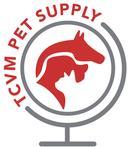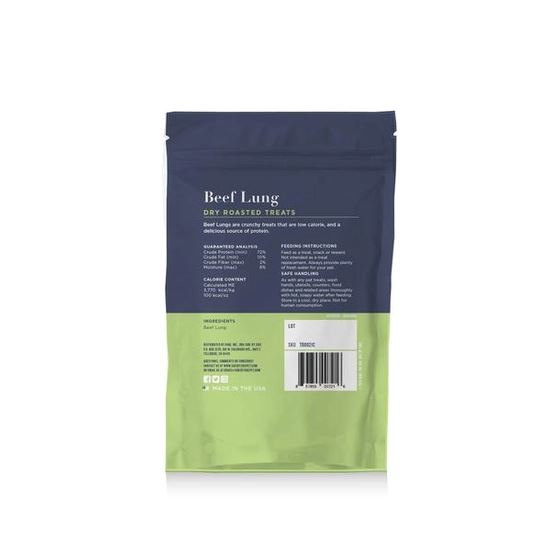
Understanding Eastern Medicine & How It Helps Pets

What is Eastern Medicine for Pets?
Eastern medicine for pets, also known as Traditional Chinese Veterinary Medicine (TCVM), is a holistic approach to pet healthcare that draws upon ancient Chinese medical principles.
It encompasses various practices such as acupuncture, herbal medicine, dietary therapy, Tui Na (massage).
Eastern medicine for pets promotes balance and harmony within the body, addressing the root cause of ailments rather than just treating symptoms.
It focuses on restoring and maintaining the pet's overall well-being by supporting their natural healing abilities and optimizing their energy flow.
The History Behind the Practice
Eastern medicine for pets arose from the theory of Traditional Chinese Medicine (TCM), which has its roots in ancient Chinese philosophy and has been practiced for thousands of years.
It's counterpart, TCVM, originated in China to promote wellness for farm animals. The original goal of TCVM was to keep farm animals healthy and help them produce more.
As time passed, people started enjoying the company of companion animals. And naturally, they wanted to provide Eastern medicine for their furry friends.
In the last few decades, TCM gained popularity in Western countries and helped many people find relief Western medicine couldn't provide. And accordingly, Westerners started seeking Eastern medicine options for their pets.
The Theory Behind the Practice
The fundamental concept in TCM is the balance and flow of vital energy, known as Qi (pronounced "chee"), throughout the body.
According to TCM theory, health issues arise when there is an imbalance or disruption in the flow of Qi.
TCM also recognizes the interconnectedness of the body, mind, and environment.
It views the body as a holistic system where various organs and systems work together, and imbalances in one area can affect the pet's overall health.
Another critical aspect of TCM theory is the concept of Yin and Yang, which represent opposing but complementary forces in the body.
Imbalances between Yin and Yang can lead to health problems. Accordingly, the goal of Eastern medicine for pets is to restore and maintain the harmonious balance between these two forces.
By understanding a pet's unique constitution, energy patterns, and imbalances, Eastern medicine practitioners aim to restore harmony and support the pet's natural healing processes.
Eastern practitioners achieve harmony through acupuncture, herbal remedies, dietary adjustments, and other modalities tailored to the individual pet's needs.
What Pet Health Conditions Does it Help?
Eastern medicine addresses a wide range of pet health conditions.
For example, some of the common conditions Eastern medicine helps are:
- Musculoskeletal issues: Arthritis, joint pain, back pain, hip dysplasia, and other mobility problems respond well to acupuncture, herbal remedies, and massage therapy.
- Digestive disorders: Conditions like chronic diarrhea, constipation, inflammatory bowel disease (IBD), and pancreatitis respond well to dietary therapy, herbal remedies, and acupuncture.
- Respiratory problems: Asthma, allergies, chronic cough, and respiratory infections respond well to herbal remedies, acupuncture, and dietary adjustments.
- Skin conditions: Allergies, dermatitis, hot spots, and other skin irritations respond well to herbal remedies, dietary changes, and acupuncture.
- Geriatric care: Eastern medicine helps age-related issues such as cognitive decline, weakness, stiffness, and overall support for senior pets.
- Anxiety and behavioral issues: Acupuncture, herbal remedies, and calming techniques help with anxiety, fearfulness, aggression, and other behavioral problems.
- Supportive cancer care: Eastern medicine provides supportive care alongside conventional cancer treatments, helping to alleviate side effects, boost the immune system, and improve quality of life.
While Eastern medicine benefits many conditions, it does not replace conventional veterinary care.
It is often used in conjunction with Western medicine to provide a holistic and integrative approach to pet healthcare.
What are the Different Eastern Treatment Options?
Eastern medicine for pets involves several aspects of promoting holistic healing and balance. Here are some key elements and their effects on pets:
- Acupuncture: Acupuncture involves inserting thin needles into specific points on the body to stimulate energy flow and promote healing. It helps balance the body's energy pathways (meridians) to alleviate pain, reduce inflammation, improve circulation, and enhance overall well-being.
- Herbal Medicine: Herbal remedies are prescribed based on the pet's specific condition and individual constitution. These natural plant-based formulations support various bodily functions, address imbalances, boost the immune system, and provide symptomatic relief.
- Food Therapy: Eastern medicine emphasizes the importance of a balanced diet tailored to the individual pet's needs. Food therapy considers the energetic properties of food to address imbalances by recommending specific ingredients, cooking methods, and meal plans. It can support digestion, strengthen the body, and address specific health conditions.
- Tui Na Massage: Tui Na is a form of Chinese therapeutic massage. Practitioners manipulate soft tissues and apply pressure to specific points. It helps improve circulation, relax muscles, alleviate pain, and restore balance in the body.
The different aspects of Eastern medicine work synergistically to:
- address imbalances
- stimulate the body's self-healing mechanisms
- promote overall health and vitality in pets
By restoring balance and optimizing energy flow, Eastern medicine supports the body's natural healing processes, strengthens the immune system, alleviates symptoms, and enhances the pet's quality of life.
It takes a holistic approach, considering not only the physical aspects but also the emotional and energetic aspects of the pet's well-being.
How Long Does It Take to Work?
The time it takes for Eastern medicine to work can vary depending on several factors, including the specific condition being treated, the individual pet's response, and the treatment approach used. Here are a few considerations:
- Acute vs. chronic conditions: Acute conditions, such as a sudden injury or mild illness, may improve quicker with Eastern medicine. On the other hand, chronic conditions, which have been present for an extended period, may require more time to see noticeable results.
- Individual response: Each pet is unique, and their reaction to Eastern medicine can vary. Some pets may respond quickly and show improvement within a few sessions or weeks. In contrast, others may require more time to experience significant benefits. The pet's overall health, constitution, and severity of the condition can influence the response time.
- Treatment frequency: The frequency and duration of Eastern medicine treatments can also impact how long it takes to see results. Acupuncture sessions, for example, are typically initially scheduled closer together (e.g., weekly) and then gradually spaced out as improvement is observed. Herbal remedies may need to be taken consistently over a period of time to achieve the desired effects.
- Integration with conventional medicine: Many veterinarians use Eastern medicine alongside conventional veterinary treatments. The timeline for improvement depends on how well the modalities complement each other and how the pet responds to the combined approach.
Having realistic expectations and communicating closely with a qualified veterinarian trained in Eastern medicine is essential.
They can provide a more accurate assessment of the expected timeline for improvement based on the pet's specific condition and treatment plan.
Patience and consistent follow-through with the recommended treatment protocol are vital for achieving optimal outcomes.
How Can I Find a Veterinarian Who Practices Eastern Medicine?
It can be challenging to find a veterinarian trained in Eastern medicine. However, we can help! We work with many talented veterinarians regularly. The vets on our authorizing vet list are happy to help.
Another option is searching the American Holistic Veterinary Medicine Association's Member List. Look for vets who practice acupuncture, work with Chinese herbs, or designate themselves as TCVM practitioners.
Suppose you still have trouble finding a vet in your area. In that case, a third option is getting an Eastern Medicine (TCVM) telemedicine consultation.
If you get a TCVM telemedicine consultation with one of our veterinarians, you'll get personalized recommendations specific to your pet, including:
- Food Therapy Recommendations
- TCVM Herb Recommendations & Veterinary Authorization
- Supplement Recommendations
- Alternative Medicine Recommendations
- Answers to Your Questions
You can learn more about our founding veterinarians and their expertise and/or schedule by visiting their websites:


























